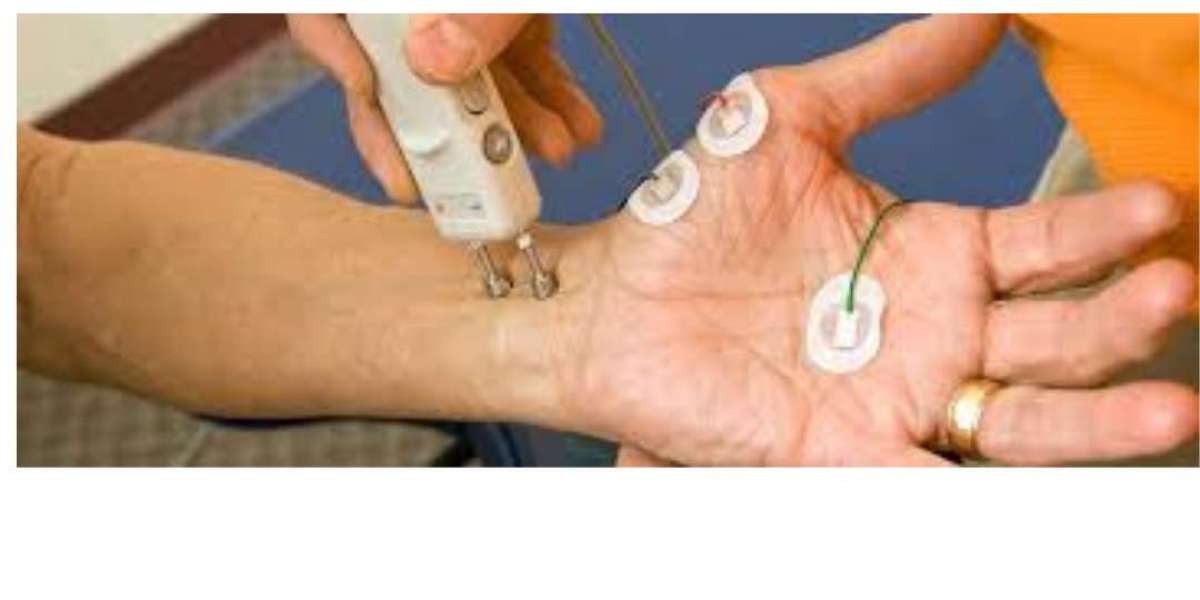Nerve Conduction Velocity Test in Bangalore: A Detailed Guide for Patients
Electromyography and nerve conduction studies are essential diagnostic tools used to evaluate nerve function and identify neuromuscular disorders. If you’re experiencing unexplained tingling, numbness, or muscle weakness, you might be advised to undergo a nerve conduction velocity test in Bangalore. But what exactly does this test entail, and how can it help in understanding your symptoms better?
Let’s break it down step-by-step, covering everything from what to expect to how this test plays a pivotal role in diagnosing nerve-related issues. For anyone seeking clarity on this diagnostic procedure, this guide will serve as your comprehensive starting point.
What is a Nerve Conduction Velocity Test?
A nerve conduction velocity (NCV) test is a medical diagnostic procedure used to assess how fast electrical signals move through your peripheral nerves. This test is typically paired with electromyography (EMG) to evaluate both nerve and muscle function. Doctors often recommend it when you present with symptoms like chronic numbness, burning sensations, or progressive muscle weakness.
Why is the NCV Test Important?
Understanding nerve health is vital for diagnosing a range of conditions. The NCV test can help detect:
Peripheral neuropathy
Carpal tunnel syndrome
Guillain-Barré syndrome
Herniated discs
Sciatic nerve dysfunction
Diabetic neuropathy
If you're facing any of these conditions, an early and accurate diagnosis via an NCV test could significantly improve treatment outcomes.
How is the NCV Test Conducted?
Preparation Before the Test
The procedure doesn’t require extensive preparation. However, patients are advised to:
Avoid lotions or oils on the skin
Inform the doctor about any implanted medical devices
Wear comfortable clothing
Step-by-Step Procedure
Electrode Placement: Small surface electrodes are placed on the skin over the nerve being tested.
Mild Electrical Pulse: A brief electrical stimulation is given to the nerve.
Recording Responses: The receiving electrodes measure how quickly the electrical impulse travels through the nerve.
The process may take between 30 to 60 minutes, depending on the number of nerves tested.
What Should You Expect During the Procedure?
While the electrical impulses might cause a mild tingling or twitching sensation, the discomfort is usually minimal. Most patients tolerate the procedure well and are able to return to their normal activities immediately afterward.
Who Should Consider Getting This Test Done?
If you're experiencing persistent:
Tingling in your arms or legs
Unexplained muscle weakness
Burning or sharp shooting pain
Difficulty with coordination or mobility
Your physician may recommend this test to assess your nerve health. It’s particularly beneficial for patients with diabetes, a history of spinal issues, or unexplained limb discomfort.
Where to Get a Reliable NCV Test?
If you're based in South India and looking for accurate, professionally administered testing, you can trust services like the nerve conduction velocity test in Bangalore offered by Ecotown Diagnostics. Their expert team and state-of-the-art equipment ensure precise readings and quick turnaround times.
Benefits of Getting an NCV Test
Early Diagnosis: Detect issues before they become serious
Non-Invasive: No surgery, anesthesia, or long recovery periods
Quick Results: Helps in fast decision-making for treatment
Supports Targeted Treatment: Ensures accurate prescription of medication or therapy
Risks and Side Effects
Generally, the NCV test is safe with minimal side effects. Some patients may experience slight discomfort or skin irritation from the electrodes, but serious complications are extremely rare.
Tips for a Smooth Testing Experience
Stay relaxed; stress can affect nerve function
Ensure your skin is clean and dry
Follow the technician's instructions carefully
Discuss any concerns with your healthcare provider before the test
Final Thoughts: Should You Take the NCV Test?
If you're experiencing symptoms that interfere with daily activities or quality of life, an NCV test might provide the answers you need. It’s a safe, effective, and informative diagnostic tool that could be the first step toward understanding and treating your nerve-related condition. If you're considering a nerve conduction velocity test in Bangalore, choosing a reputed center with skilled technicians can make all the difference in your diagnosis journey.
FAQs About Nerve Conduction Testing
1. What symptoms usually prompt a nerve conduction test?
Patients typically undergo this test if they report numbness, tingling, muscle weakness, or chronic pain in their limbs.
2. Is the test painful?
The test involves mild electrical stimulation, which can feel like a brief shock, but it's generally well-tolerated and not painful.
3. How long does it take to get the results?
Results are often available within a few hours to a couple of days, depending on the diagnostic center.
4. Can I take the test if I have a pacemaker?
It’s important to inform the technician about any implanted devices. Modifications in the testing protocol may be made to ensure safety.
5. Is fasting required before the test?
No, fasting is not necessary. However, patients should avoid applying lotions or oils to their skin.








